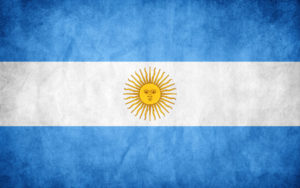Chifonne, one of our Ambassadors of Hope shares her story!
When I first heard about sex trafficking, I was probably 12 years old. It was the very early days of Shared Hope, not long after Linda Smith had been to India, and she shared at a local event where my mom heard what Linda saw and experienced, and how she was working to help. My mom was incredibly moved by what she learned, and in turn, told a number of other people about it. I was, of course, one of those people. I was shocked and horrified that girls could be SOLD as if they were property.

I remember going to my best friend Lindsay’s house and telling her about it. She was also outraged, and we decided we had to do something to help these girls. We convinced our children’s pastor to let us make a presentation to our children’s church, as long as we promised not to use words like “sex”. I remember the two of us standing in front of all our friends that Sunday morning and telling them about kids our age or younger who were slaves, and how we could help free them. We took an offering that morning and raised $34, which we sent to Shared Hope.
This happened 17 years ago, but it was the start of something significant for both Lindsay and me. I’ve been an Ambassador for several years, and have also been part of other local teams and groups working to end Domestic Minor Sex Trafficking. My friend Lindsay went on to co-produce a documentary about sex trafficking in the US, Sex + Money: A National Search For Human Worth to which Linda Smith was a contributor, and which screened at college campuses across the nation. Both Lindsay and I have continued at times doing work abroad with girls and children at-risk.
[easy-tweet tweet=”You never know how people’s hearts are being stirred by your words.” user=”SharedHope”]
I say all of this not to toot our proverbial horns in any way, but as a reminder for all of us who work to raise awareness. You never know how people’s hearts are being stirred by your words, or what they may do in response to being informed. If you recall, neither my friend nor I had been at an actual “presentation.” Someone who had been – my mom – shared with me, and I shared with a friend, who in turn shared with a lot more friends. That ripple effect is happening ALL THE TIME. What you do has impact that reaches far wider than you may realize.
[easy-tweet tweet=”What you do has impact that reaches far wider than you may realize. ” user=”SharedHope”]
Chifonne, Washington State Ambassador
We need your help to take action and offer prevention education in your community! Become an Ambassador of Hope today!
[easy-tweet tweet=”Shared Hope needs your help, become an Ambassador of Hope today! ” user=”SharedHope”]
 While panic fills the region, one country is beginning to plan and implement policies to overcome the battle against sex trafficking. Argentina has moved from panic mode to planning mode. Argentina has begun incorporating three key policies and is seeing positive results. These policies are:
While panic fills the region, one country is beginning to plan and implement policies to overcome the battle against sex trafficking. Argentina has moved from panic mode to planning mode. Argentina has begun incorporating three key policies and is seeing positive results. These policies are: help make a difference in the lives of victims of this crime. My friend Lisa Stirrett is a local glass artist who uses her studio to host community events. She also has a heart for this issue. The idea formed for a Party with a Purpose, in which she would create glass butterflies that could be sold as part of a fundraiser for Shared Hope and those they serve. We sold about 50 butterflies, many of which were donated back to create a larger piece in progress. And we didn’t stop there!
help make a difference in the lives of victims of this crime. My friend Lisa Stirrett is a local glass artist who uses her studio to host community events. She also has a heart for this issue. The idea formed for a Party with a Purpose, in which she would create glass butterflies that could be sold as part of a fundraiser for Shared Hope and those they serve. We sold about 50 butterflies, many of which were donated back to create a larger piece in progress. And we didn’t stop there! Lisa has added the glass butterflies to her
Lisa has added the glass butterflies to her  This is our desire—creating an art movement of butterflies flying freely to represent an end to the pain and suffering caused to young girls and women because of the sex trafficking industry. In addition to collaborating with Lisa Stirrett Glass Art Studio, I am partnering with Shared Hope International because of the great work they are doing locally, nationally, and globally to educate and empower others to end sex trafficking.
This is our desire—creating an art movement of butterflies flying freely to represent an end to the pain and suffering caused to young girls and women because of the sex trafficking industry. In addition to collaborating with Lisa Stirrett Glass Art Studio, I am partnering with Shared Hope International because of the great work they are doing locally, nationally, and globally to educate and empower others to end sex trafficking.





